
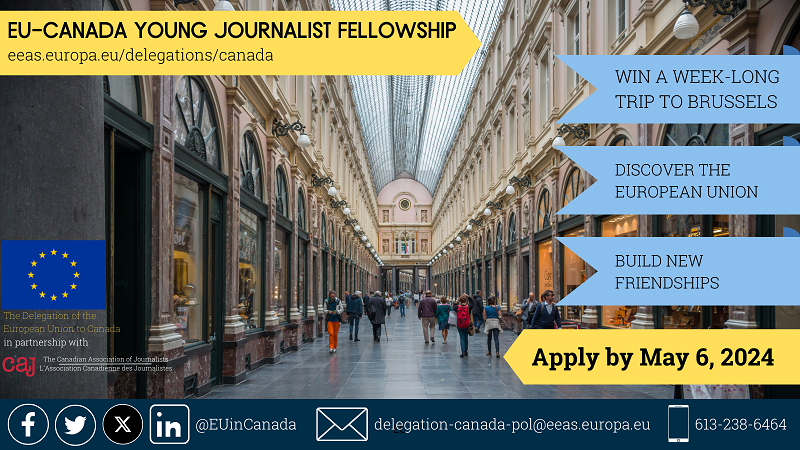
The Delegation of the European Union to Canada and the Canadian Association of Journalists (CAJ) are pleased to announce the 2024 edition of the European Union-Canada Young Journalist Fellowship.
Deadline for submissions is Monday, 6 May 2024. The study tour to Brussels will take place in October 2024.
The EU-Canada Young Journalist Fellowship aims to recognize outstanding journalistic talent among young Canadians. Since 2001, three candidates have been selected every year to participate in a week-long study tour to experience the EU institutions, the Canadian Mission to the EU, and media outlets in Brussels. Winners will also attend the daily European Commission press briefing. All expenses are paid for by the Delegation of the European Union to Canada. Winners will also benefit from a one-year CAJ membership or one-year CAJ membership renewal.
Winners will also be invited to an awards ceremony co-hosted by the Office of the Speaker of the House of Commons and the CAJ on Parliament Hill in Ottawa.
The EU-Canada Young Journalist Fellowship seeks to foster links between Europeans and Canadians and to raise awareness of the European Union among a new generation of Canadian students and journalists.
Winners are required to submit a sample of their work and to chronicle their study tour experience online or in print during the study tour or upon their return from Europe (i.e. published articles, blogging, social media platforms).
Eligibility:
In order to be eligible, participants must be:
Applications must include:
1. Sample of work
2. Letter of motivation
3. Curriculum vitae
4. Proof of Canadian citizenship or permanent resident status
The closing date for applications is 6 May 2024
Please note that incomplete applications, i.e. applications not containing all of the above documents submitted at the same time, will not be considered.
For audio-visual entries, please send online link by e-mail or USB by mail with the application.
Applications are to be sent either by e-mail to DELEGATION-CANADA-POL@eeas.europa.eu or by mail to the following address:
Delegation of the European Union to Canada
Ref.: EU-Canada Young Journalist Fellowship
150 Metcalfe Street, Suite 1900
Ottawa, Ontario K2P 1P1
Final selection by the Jury:
The Jury, consisting of EU Delegation representatives, professional journalists and academics, will meet in spring 2024 to select the best pieces received by the closing date. The decisions of the Jury will be final. The three winners will be notified directly.
The Study Tour scheduled for October 2024
Established in 1976, the European Union Delegation to Canada is a fully-fledged diplomatic mission and, as such, the natural contact point in Canada between the EU and the Canadian authorities. It also has a strong public diplomacy mandate designed to enhance the knowledge and understanding of the European Union as well as EU-Canada relations.
The Canadian Association of Journalists is Canada’s largest national professional organization for journalists from all media, representing members across the country. The CAJ’s primary roles are to provide high-quality professional development for its members and public-interest advocacy.
For further information:
Diodora Bucur, EU Delegation Press Officer, Diodora.Bucur@eeas.europa.eu
Monique Durette, Canadian Association of Journalists, Operations Manager monique.durette@caj.ca
Call for Applications 2024
 Photo: Hermes Rivera/Unsplash
Photo: Hermes Rivera/Unsplash
For more than 30 years, Atlantik-Brücke has convened an annual German-Canadian conference to discuss themes of mutual importance for both countries, bringing together leaders from Canada and Germany in a frank exchange and dialogue. The annual conference has become the forum in which to strengthen Germany-Canada relations and intensify the exchange between business, civil society and politics on a multi-partisan basis. The Young Atlantiks Program promotes the “next generation” of German-Canadian transatlantic partnership, and is now in its fourth year. Alumni of the Young Atlantiks program will remain active in the Atlantik-Brücke and Atlantik-Brücke Canada network.
Bringing together a selected group of young Canadian and German participants, the group will convene for five days to exchange and engage on current and future challenges on both sides of the Atlantic. In addition, the delegation will attend the main German-Canadian Conference taking place in Berlin from May 12-13, 2024. Topics of discussion will include security policy and changing geopolitical realities, energy and the environment and technology’s impact on politics, the economy and society.
When: May 11-15, 2024
Participants: Canadian and German citizens between 28 and 35 years of age
Application deadline: March 3, 2024
Participants will receive fixed stipends to support flight/travel costs to Berlin, accommodation, and group meals. Logistical arrangements to/from the conference must be arranged by the individual. Incidentals are the responsibility of the participants.
Deadline for applications is March 3, 2024
To apply:
Successful applicants will be notified by March 17, 2024.
Note: This program is contingent upon funding. The final number of participants will be determined by the level of financial support received for the program.
Should you have any further questions, please contact l.korndoerfer@atlantik-bruecke.org.

The Humboldt Residency Programme offers participants the opportunity to cooperate intensively on this year’s topic, “Power and Knowledge”, and work together to generate tangible new ideas and communicate them to a broad audience.
It brings together a transdisciplinary, international group of twelve participants consisting of Humboldtians and junior researchers with a diverse range of disciplinary backgrounds with writers, artists, civil society actors and social entrepreneurs.
During the six-week residency in Brandenburg/Berlin, participants will meet daily in shared working spaces. They will have the unique opportunity to enjoy the time and freedom to gain an in-depth understanding of each other’s work and thinking, build transdisciplinary bridges, explore synergies, pose bold questions, and connect with relevant stakeholders in Berlin and internationally.
While the participants themselves will benefit by learning from each other, they will also select and implement innovative formats to communicate their key messages to target audiences outside of academia. These could include debates with stakeholders, media appearances, bar talks, interactive workshops, blog and social media posts or publications. In 2024, one goal of the programme is to formulate and advertise a policy paper with the participants’ key messages. For a vivid impression of previous residencies, take a look at the video documentaries on 2022 and 2023.
Knowledge and power are inherently linked. The decision as to what constitutes (true) knowledge emerges from a global, but asymmetrical network of power structures. In 2024, the Humboldt Residency Programme addresses this topic by asking the question as to how the exchange of knowledge between the Global North and the Global South can be structured in the science system and beyond. The aim is to create synergies out of existing knowledge and integrate the voices of more local actors in global strategies.
The key questions are:
The project runs from June to November 2024 and involves:
In-person participation during the entire residency from 5 August to 13 September is a requirement for participating in the programme.
Funding for participation in the Humboldt Residency Programme includes
The participants will comprise
We welcome applications from individuals from all (academic) disciplines who can demonstrate a relevant connection to the annual theme either in their work or other engagement. We explicitly invite applications from those with innovative or creative approaches to the key questions.
The selection committee will evaluate applicants based on
Beyond evaluating individual applications, the selection committee will ensure the diversity of the group by taking account of discipline, geography and gender.
Your application to the Humboldt Residency Programme should include
Please send your application via email to residency[at]avh.de using the subject line “Application Humboldt Residency Programme 2024”. You will receive a confirmation email after submitting the application.
Deadline for applications is March 4.
The selection committee will meet in early April, and you should expect to receive a decision on your application mid-April.
Application form Residency Programme 2024
Please reach out to residency[at]avh.de should you have any questions regarding the programme or application process.
·
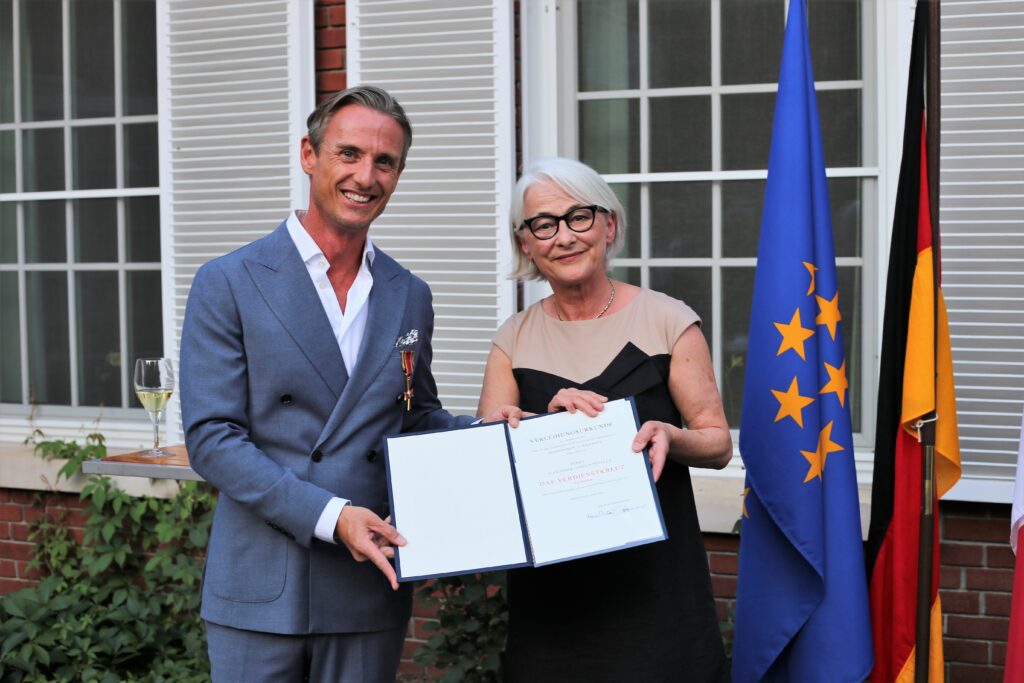
The Order of Merit, awarded by Bundespräsident Steinmeier, recognizes Maestro Shelley’s exceptional contributions to music and his deep connection to German culture.
Maestro Shelley’s journey in Germany began at 18, where he co-founded the Schumann Camerata, established a captivating concert series in Düsseldorf, and embarked on successful international tours. As Chief Conductor in Nuremberg, he led the acclaimed Klassik Open Air concerts and fostered a groundbreaking social initiative with the Deutsche Kammerphilharmonie Bremen.
Throughout his career, Maestro Shelley has demonstrated a profound appreciation for German music, premiering contemporary works alongside masterpieces by Beethoven, Schumann, Brahms, and Strauss. His passion for the German language and his commitment to nurturing enduring friendships further exemplify his deep connection to Germany.
We applaud Maestro Alexander Shelley on this well-deserved honour and look forward to witnessing his continued achievements as he captivates audiences in Ottawa and around the globe with his extraordinary talent and unwavering dedication to classical music.
When: June 3rd-8th, 2023
Participants: Canadian and German citizens between 25 and 30 years of age
Trip includes visits to: Ottawa, Canada
Application deadline: April 24, 2023
Description:
For more than 30 years, Atlantik-Brücke has convened its annual German-Canadian Conference to discuss current themes relevant to both countries, bringing together German and Canadian leaders in a frank exchange and dialogue. This annual conference has become the forum in which to strengthen Germany-Canada relations and intensify the exchange between business, civil society and politics on a multi-partisan basis. The Young Atlantiks Program promotes the “next generation” of German-Canadian transatlantic partnership. It offers a small group of young Canadians and Germans the opportunity to convene on the sidelines of the conference and to participate in the meeting itself.
Bringing together young Canadian and German participants, the Young Atlantiks will get together for five days to exchange and engage on current and future challenges on both sides of the Atlantic. In addition, the delegation joins as observers at the main German-Canadian Conference taking place in Ottawa from 4-5 June.
Topics of discussion will include security and changing geopolitical realities, energy and the environment and technology’s impact on politics, the economy and society.
Alumni of the Young Atlantiks program will remain active in the Atlantik-Brücke and Atlantik Bruecke Canada network. The Young Atlantiks program is produced in partnership with the Embassy of the Federal Republic of Germany in Canada and the Embassy of Canada in Germany.
Format:
∙ Up to 10 participants (German, Canadian, gender-balanced)
∙ Delegates will be required to participate in the entire in-person programme taking place in Ottawa, Canada
• Arrival Saturday 3 June, 2023
• Departure Thursday 8 June, 2023
∙ The programme entails meetings and discussions with senior decision-makers, academics, and business leaders from various sectors; a cultural and social program are also planned (i.e. visits to museums, site visits and memorials)
∙ English will be the primary language used throughout
∙ Participants are invited to join, as observers, the annual German-Canadian Conference
Successful Applicants will:
∙ Be a Canadian or German citizen between the ages of 25 and 30
∙ Demonstrate leadership in their professional careers
∙ Show a strong interest in the German-Canadian partnership and in political, economic and social issues
∙ Demonstrate willingness to contribute to the Atlantik-Brücke and Atlantik
Bruecke Canada network
∙ Applicants can be from any sector including: business, government, media, military, non-profit, finance, academia or the arts
∙ Women and gender minorities, as well as people of all backgrounds are encouraged to apply to ensure a diversity of perspectives
Aim:
∙ To foster greater understanding of the German-Canadian relationship among the younger generations and to provide them an opportunity to make lasting transatlantic connections
∙ To learn first-hand about another country’s society, political institutions, history and culture
∙ To create a young German-Canadian alumni network
∙ To increase future leaders presence in the network of Atlantik-Brücke and Atlantik Bruecke Canada
For full details: https://www.atlantik-bruecke.org/en/german-canadian-young-atlantiks-program/
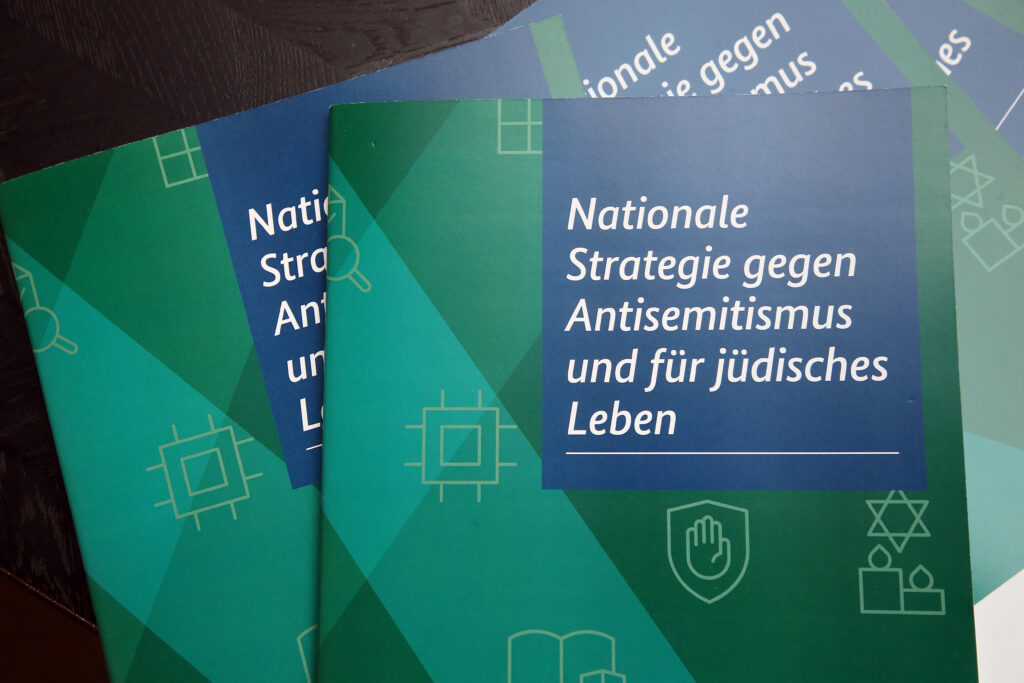
This Strategy, adopted by the cabinet on 30 November 2022, represents a milestone. It is the first Federal Government strategy to focus solely on fighting antisemitism and fostering Jewish life.
With the Strategy, the Federal Government is also implementing an EU Commission provision: The EU Strategy on combating antisemitism and fostering Jewish life (2021 – 2030), adopted in October 2021, called on the EU member states to draw up, by the end of 2022, national strategies for combating antisemitism.
The Strategy provides a matrix of five areas of action and three cross-cutting aspects: the five-by-three model. To ensure a holistic approach to combating antisemitism, all elements should be applied in equal measure.
The objectives of the five areas of action are all interlinked. They apply to society as a whole, and can only be reached together.
Each area of action is informed by tasks from the three cross-cutting aspects:
Particular attention must be paid to these three dimensions in all of the areas of action.
The first area of action, “Data collection, research, and overview of the situation”, looks at what type of information is available on antisemitism and how we can improve and expand this information and share it with each other. Are we listening to Jewish voices? Are we involving the Jewish community in the formats we use to share information? Are our networks adequate?
The way information is collected, the way it is passed on to contact people or reporting points, and the way it is incorporated into situation overviews, are as relevant for the voluntary fire service, for example, as they are for a federal state.
The second area of action, “Education to prevent antisemitism”, focuses on imparting knowledge. Education should be provided on antisemitism in a way that is tailored to the target group and at different times of life, for example, in schools, during training and further education, and in professional settings.
Education on antisemitism and the history of the Holocaust can take place in business settings just as well as it can in training sessions for public-sector employees.
The third area of action is “Commemoration, a culture of remembrance, and an awareness of history”. Active remembrance is based on a critical awareness of history. It also includes the dignified commemoration of the victims of National Socialism. It is just as important for a school to plan its approach to remembrance and commemoration as it is for federal authorities and businesses to do so.
The fourth area of action, “Security and punitive action against antisemitism”, looks at how we should react to antisemitic acts, and how we can provide freedom and security for all.
This section spans topics from legislation to football banning orders. This is because the sanctions we apply against antisemitism are just as important for the police as for a sports club.
The fifth area of action, “Jewish past and present”, focuses on empowering Jews and making them more visible. A youth club is just as good a setting for supporting the Jewish community and fostering awareness of, and contact with, their day-to-day reality as a government organisation is. Our year of celebration last year, “1700 years of Jewish life in Germany”, showcased some of the excellent opportunities for this, for example in schools and at cultural events.
The Strategy lists specific objectives set by the Federal Government and also lists higher-level objectives. Depending on who is working with the Strategy, stakeholders can formulate their own objectives, or can adapt existing ones. To illustrate ways in which such measures can be implemented in the areas of action, the Strategy also provides a range of examples of best practices at Federation and state level. Fighting antisemitism is an ongoing task for all of us, both at the state and civil-society level. This is what the National Strategy is aiming for. It is particularly important that the Strategy can be applied at every level in the political sphere and in broader society. Because antisemitism is a threat to our democracy as a whole.
In German: https://www.antisemitismusbeauftragter.de/SharedDocs/downloads/Webs/BAS/DE/nasas.html
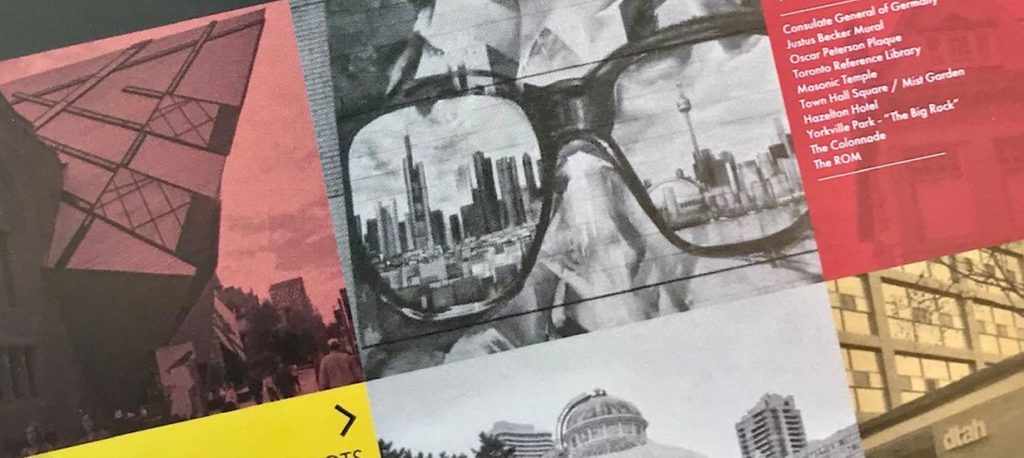
Let’s get out this spring to discover Toronto’s German roots with our immersive audio walk #GermanWalkTO. This project was realized in partnership with Toronto Metropolitan University Library, Toronto author Shawn Micallef and acclaimed visual journalist Liam Maloney.
Toronto is a city of neighbourhoods, and many of them have a deep and layered ethnic history. While Germans in Toronto don’t have one particular neighbourhood to call their own, German influence can be found across the city – hidden and not always obvious. Born out of the city tours that the German Consulate Toronto organizes twice a year with local city tour guides, #GermanWalkTO is an initiative by the German Consulate General Toronto in partnership with the Toronto Metropolitan University Library, Toronto urbanist Shawn Micallef and acclaimed visual journalist Liam Maloney.
#GermanWalkTO is a virtual scavenger hunt of Toronto’s German roots, a collection of city walks, divided into three thematic walks that guide the urban explorer through different parts of the city while pointing out and explaining some of Toronto’s often hidden German treasures. The immersive audio walks lead through GPS-triggered coordinates of each German sight for a fully self-guided experience.
To start exploring visit https://germanwalkto.com/ and download the Echoes App here.
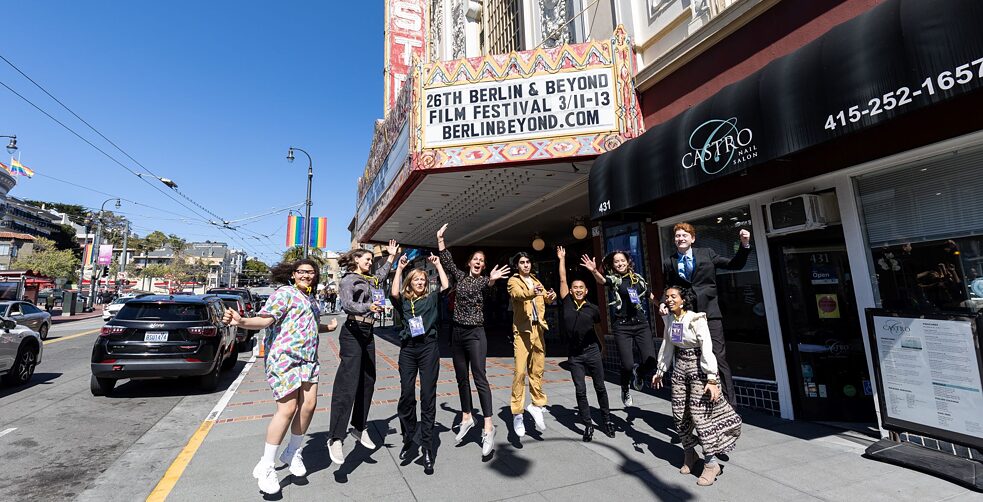
The Goethe-Institut’s Step Into German program and the Berlin & Beyond Film Festival are seeking students from across the US, Canada, Mexico, Central America, and the Caribbean (ages 14-18) to participate as jurors in the tenth annual program of Youth 4 German Cinema. This offers the opportunity for young people with an interest in German arts and culture to come to San Francisco and be part of the 27th Berlin & Beyond Film Festival in March 2023. Three applicants will be selected.
2023 Program Application
Before the Film Festival
Participants will form the Youth 4 German Cinema jury. They will screen selected German films online (with English subtitles), engage in discussions, and choose one film to be shown at the festival.
As Part of the Film Festival Experience:
Participants will:
Participation in this program will not only make a great addition to the student’s resumes and college applications, it will also allow students to learn the fundamentals of film analysis, film production, and how to network and make connections for future endeavors.
Important Dates:
Travel & Accommodation:
A very exclusive and grand opportunity: Each participant will be provided roundtrip airfare to San Francisco, accommodation and food. *Please note that due to the global COVID-19 pandemic, unforeseen travel restrictions and health and safety measures might occur. **Please note that in case regulations around COVID-19 change, we may have to reject applicants who are not vaccinated against COVID-19.
Schedule in San Francisco:
Arrival in San Francisco: March 23, 2023
Festival Opening Night: March 23, 2023 (evening)
Youth 4 German Cinema Screenings: March 24, 2023 (morning)
Youth 4 German Cinema Workshops: March 25, 2023
Youth 4 German Cinema takes high-school students backstage for a glimpse into the workings of the international film festival Berlin & Beyond. In doing so, students are introduced to the German language cinema landscape and learn about filmmaking, film criticism, and international films as a whole.
Chosen from a pool of applications from across the US, Canada, Central America, and the Caribbean, Youth 4 German Cinema allows select high school students to participate in and go behind the scenes of an international film festival; meet industry professionals; to participate in artistic workshops; and to increase their cross-cultural awareness. Finally, they also help select the two winning films which are screened at the festival for hundreds of visiting students from across the San Francisco Bay Area and Northern California.
Meet a jury from Youth 4 German Cinema: